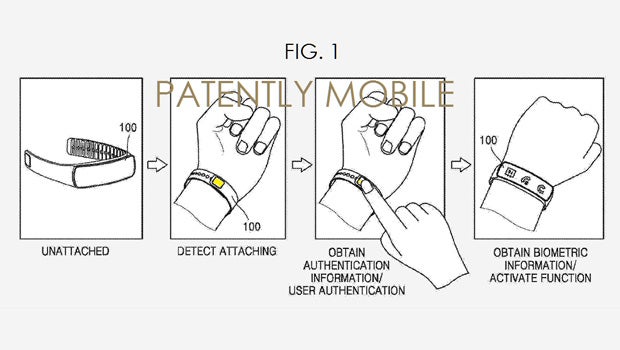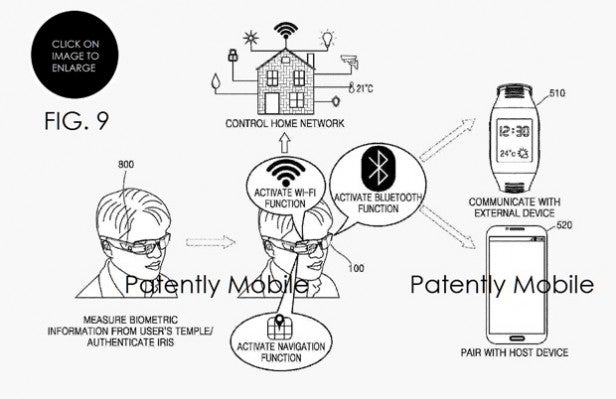The crazy Samsung patent set to change the Gear Fit and Gear VR forever

Samsung is pretty keen on biometric authentication these days and that looks set to stretch well beyond the iris scanner on the new Galaxy Note 7.
A new patent filing, unearthed this week by PatentlyMobile, revealed Samsung potentially has plans to integrate biometrics sensors within the Gear Fit watch and perhaps even the Gear VR headset.
First up is a fingerprint sensor for the Gear Fit wristband, which would protect the device from being accessed by unauthorized users.
There’s also talk of the heart-rate sensor being used to determine whether the device should connect to Wi-Fi in order to receive push notifications.
The patent suggests the notifications will come through when the HR sensor detects greater than 50 beats per minute, essentially confirming the device is being worn.
This seems like a mighty fine idea to prevent a watch working hard and consuming battery life when not being worn.
This method would also enable the Gear Fit to be paired with a mobile device, communicate with an external device or the SmartThings-controlled home network.
Elsewhere, the patent introduces biometrics iris sensor for eyewear, which could be used on the Gear VR.
Much the same as the sensors on the future Gear Fit, it would also be used to activate Wi-Fi, Bluetooth and pair with the host or external devices.
The patent is interesting because, as much as smartphone security has become a hot topic in the last couple of years, the wearables they pair with are not as protected.

As always with our reports on patents, it’s important to remember not all of them make it to consumer products.
However, it’s interesting to see Samsung is at least considering moving in that direction.


